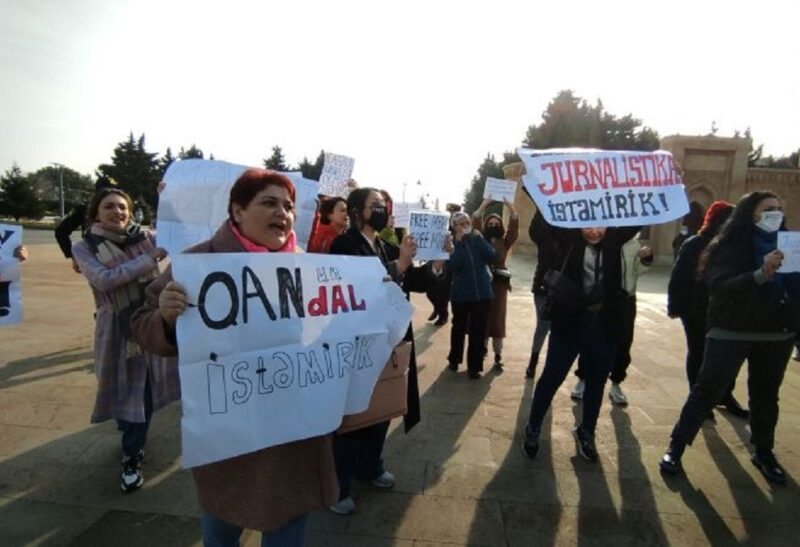Last Friday, a
letter
began circulating on social media. It appeared that the government of Azerbaijan decided to close the Organization for Security and Cooperation in Europe (OSCE) office in Baku. The news was later
confirmed
. In diplomatic language, authorities did not say they were closing the office, but they did “not see any more need for the activity of the OSCE Project Coordinator in Baku.”
The government’s resentment of the OSCE began in October 2013. At the time, the Head of the OSCE Election Observation Mission said that the “
citizens of Azerbaijan deserve better
” than the kind of controlled elections that occur in Azerbaijan. This was quite a blunt statement summarizing the organization’s findings that the presidential election was undermined by limitations on fundamental freedoms, lack of level playing field, and significant problems on the election day. It was in the wake of those findings that the full-fledged OSCE office was
transformed
by the Azerbaijani government into a so-called coordinator’s office.
The latter was
designed
by Azerbaijan to suit the government of Azerbaijan, and limited to what the government agrees to work on: combating terrorism, promoting religious tolerance in Azerbaijan, improving co-operation between governmental institutions and civil society organizations in the fields of combating human trafficking and domestic violence, and supporting good governance projects.
The OSCE office in Baku has been crippled since. They have for instance not been able to monitor trials of the jailed human rights defenders, journalists and activists this year. They could not speak up against the arbitrary detention when they are in desperate need of medical attention, such as human rights lawyer
Intigam Aliyev
and human rights defender Leyla Yunus.
The government’s decision to end even what was left of OSCE’s presence in the country puts Azerbaijan outside of the international community. This needs to be addressed and action must be taken. The Permanent Council’s meeting on June 8, 2015 will at best serve as a platform for a public expression of despair.
Action must, however, be taken at the Council of Europe and the United Nations. Intigam Aliyev and his colleagues have addressed the situation in Azerbaijan in Strasbourg, Geneva and New York over the years; they alerted the international community that their lack of reaction allow the country to slide in the wrong direction. Both institutions have for the moment failed in addressing the situation and are now facing a non-cooperative government. They now have to take measures, not only by addressing the situation, but also clearly setting deadlines and milestones. The Council of Europe’s Committee of Ministers, chaired in 2014 by Azerbaijan, needs to establish a rapporteur group. The UN Human Rights Council needs to request action by the High Commissioner.
If one can commend the Council of Europe’s Commissioner and the UN special rapporteurs for, again and again, addressing the situation in Azerbaijan, their leverage is limited.
One can wonder though how many more alarming signs are needed to get at least some reaction from European Union officials and the member states, stronger than simply expressions of concern or regret over “disproportionate” sentences against Intigam Aliyev and human rights defender Rasul Jafarov. The Union should instead use its leverage and clearly state, as it did with Belarus, that a country putting itself aside from its commitments and obligations shall not be part of its circle of friends.
The friends of Azerbaijan are these days actively lobbying to get European political leaders to Baku for the opening of the first European Olympic Games on Friday, 12 June. President Vladimir Putin announced today he would of course be going to Baku. One can hope that the expression of support to those ousting OSCE from their country should be opposed by clear expression of absence due to the human rights situation by European leaders.
The friends of human rights should also seriously consider how far they are willing to let the country slide. To avoid it, sanctions are needed, targeted against those responsible for the misuse of law to imprison human rights defenders, journalists and activists, including restricting rights to travel abroad and freeze of personal assets of those violating the rights of individuals, such as prosecutors and judges. One cannot today continue “business as usual” with Azerbaijan.
Florian Irminger is the
Head of Advocacy at Human Rights House Foundation (
HRHF
).



